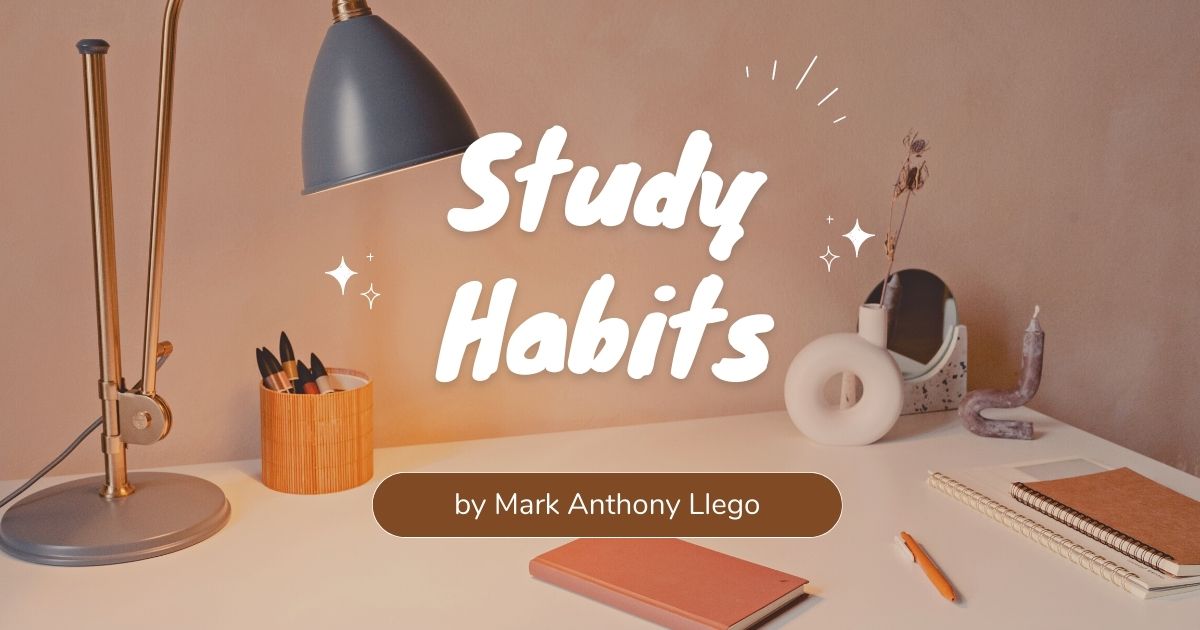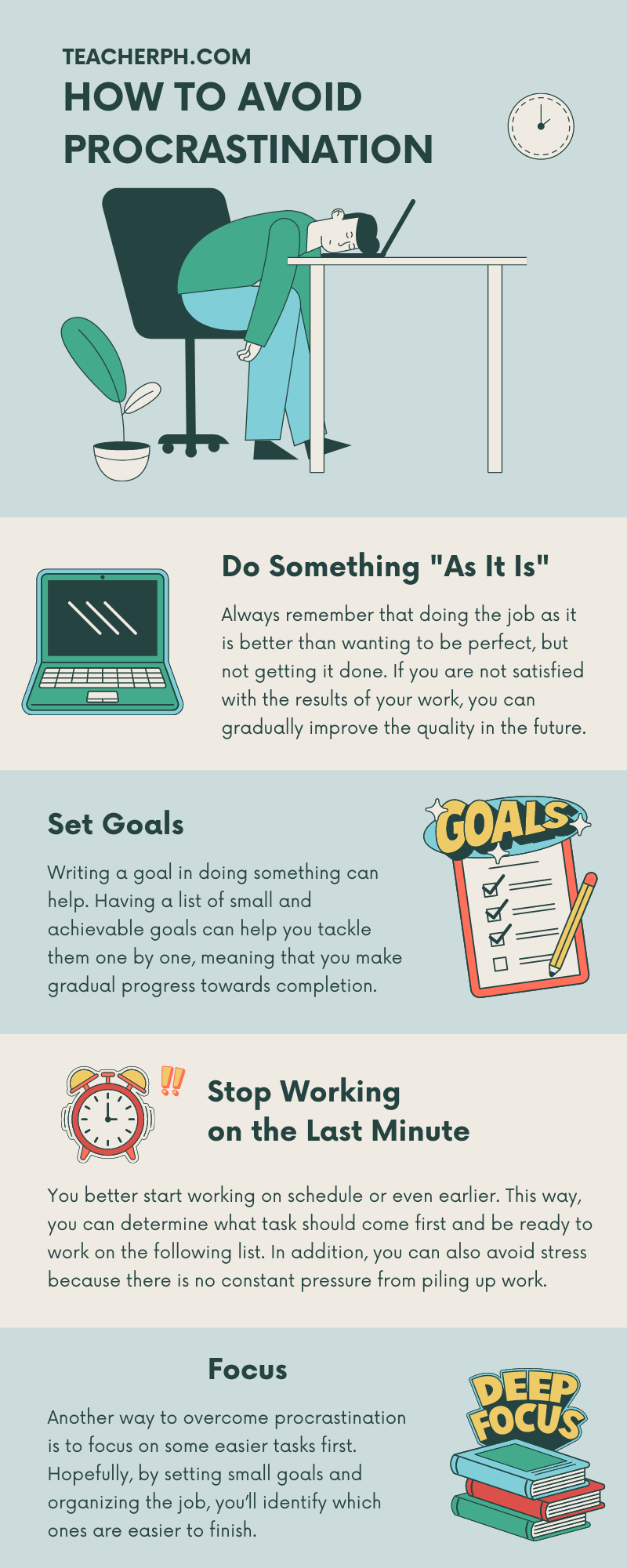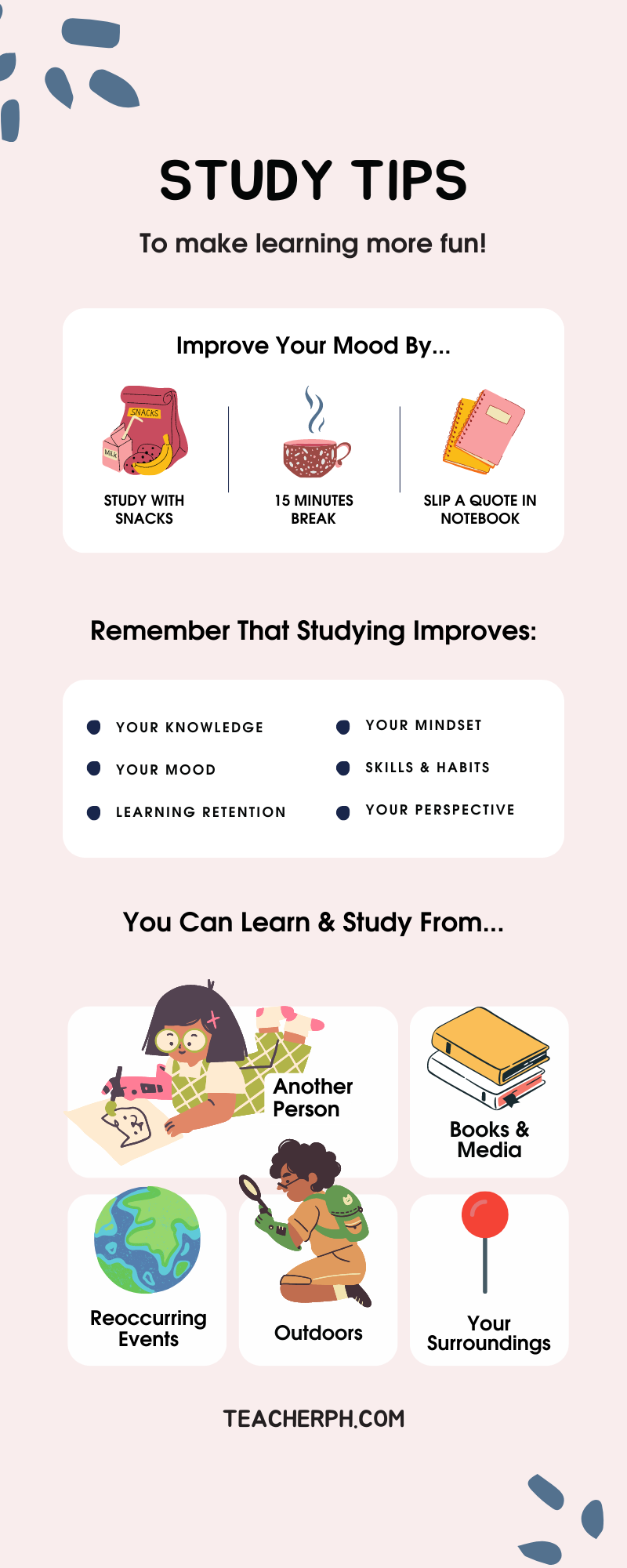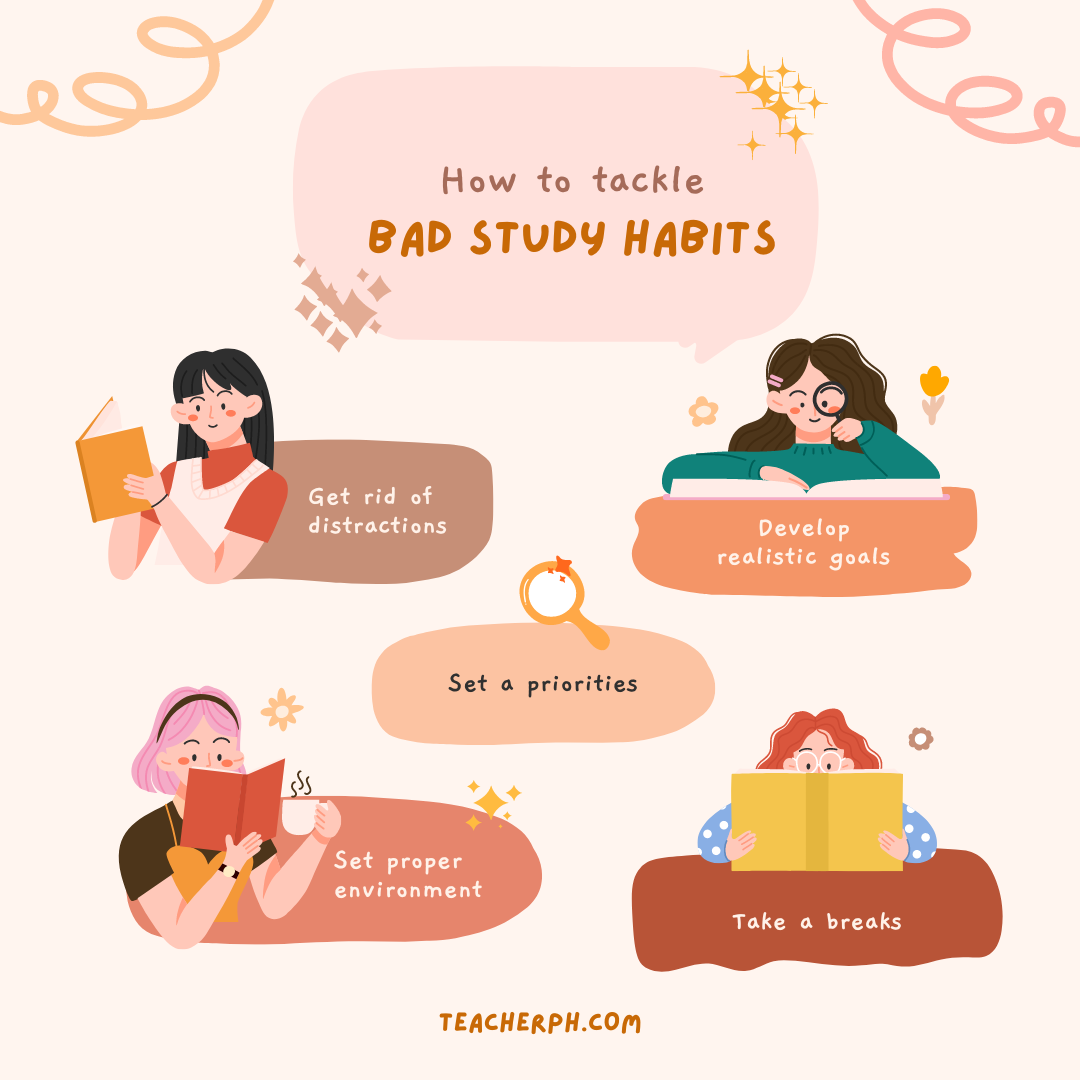
Developing good study habits is essential for students of all ages. Students can learn to focus and stay on task by forming a regular study routine, improving their productivity and academic performance. Good study habits also help students develop a sense of responsibility and independence, preparing them for the challenges of college and beyond.
Table of Contents
How to Develop Effective Study Habits
The best way to develop effective study habits is to figure out what works best for you. Everyone is different, so there is no one-size-fits-all solution. However, some general tips can help you get started.
One of the most important things is to create a study schedule and stick to it. It means dividing your time into specific blocks for different tasks, such as reading, writing, and reviewing notes. It is also essential to be realistic with your schedule – do not try to cram too many activities into one day!
Another key tip is to break down big tasks into smaller ones. It will help you stay focused and avoid feeling overwhelmed. For example, if you have a project or a portfolio due in two weeks, break the task down into smaller steps, like brainstorming ideas, writing a rough draft, and editing.
To maximize your learning potential, creating a personalized learning environment is essential. It might include setting up a designated study space with all your materials handy or listening to music or reading while studying.
In addition, it is also important to set achievable goals. Do not try to cram all your studying into one night – spread it out over several days. Try putting a specific goal for each study session. For example, “I will read three pages of my textbook tonight” or “I will review my math lessons for next week tomorrow” will help keep you focused and motivated.
Finally, do not forget to take breaks! Studying for hours can be counterproductive, so give yourself time to relax and recharge. Short breaks every 20-30 minutes can help keep your focus sharp.
Above all, remember that developing good study habits takes time and effort. Nevertheless, with a bit of perseverance, you can achieve great things!
Creating a Study Schedule
One of the best ways to ensure success in school is to develop a study schedule and stick to it. A study schedule can be tailored to fit any student’s needs and can be adjusted as needed. Some tips for creating a study schedule are:
- Start by identifying the times you have available to study. Be realistic and include homework, chores, eating, and sleeping time.
- Block off those times on a calendar and start by filling in your classes and homework assignments.
- Allow for some flexibility; if something comes up and you need to adjust your schedule, be sure to do so.
- Make a list of the subjects you need to study and then create a plan for how much time you will spend on each one.
- Get organized! Have all of your materials ready before you start studying.
Following a study schedule can be challenging but worth it in the end. When you can see your assignments written out in front of you and know what you need to do each day, it’s easier to stay on track. Furthermore, setting aside specific studying times makes you less likely to procrastinate.
Breaking Down Big Tasks Into Smaller Ones
One of the students’ most important study habits is breaking big tasks into smaller ones. When you break down a task, it becomes more manageable and less intimidating. You can then focus on one small task at a time, which makes the overall task easier to complete.
There are a few ways to break down a task. One approach is to chunk the task into smaller parts. So, for example, if you have to write a paper, you might break it down into brainstorming, outlining, writing the draft, and editing. Another approach is to time-box the task. It means you set a specific amount of time to work on the task and then move on to something else when it is up. For example, you might give yourself 10 minutes to work on a math problem and then move on to the next problem.
Both of these approaches can help break down big tasks into manageable pieces. When you start your next assignment, try using one of these approaches to make it easier to start.
7 Tips for Staying Motivated During Your Studies

There are several different things that you can do to stay motivated during your studies. Some of the most effective tips include:
- Set realistic goals for yourself and strive to accomplish as many of them as possible.
- Make a study schedule and stick to it as closely as possible.
- Take breaks regularly, but make sure that you set a specific time for when you will resume studying.
- Find a study buddy or group to help keep you accountable and motivated.
- Reward yourself for completing tasks or reaching milestones, but do not overindulge or get too caught up in rewards.
- Be willing to adjust your goals or study habits if they are not working for you.
- Keep a positive attitude and remember that even tricky tasks can be accomplished with enough effort and perseverance.
How to Deal With Distractions and Procrastination

It can be challenging to focus on studying when so many distractions are around. Here are a few tips to help you stay focused:
- Make a study schedule and stick to it.
- Find a quiet place to study where you will not be disturbed.
- Turn off your phone and other distractions.
- Take breaks every hour, but set a timer, so you do not get too distracted.
- Reward yourself for completing tasks or studying for a certain amount of time.
- Avoid procrastination by breaking down large tasks into smaller ones.
- Get enough sleep and exercise; both help improve focus and concentration.
- Try focusing on why you are studying in the first place. What are your goals? What do you want to achieve?
If you can stay focused and avoid distractions, you will be well on your way to success in your studies!
How to Improve Your Study Habits During COVID-19 Pandemic

During this COVID-19 pandemic, you can do a few things to help improve your study habits. One is to make sure that you have a designated place to study, where you will be able to focus without distractions. You should also set aside specific times each day for learning and plan how to use that time. Finally, staying organized and tracking what you need to accomplish each day/week/month is essential.
- Make sure you have a designated place to study where you can focus without distractions.
- Set aside specific times each day for studying, and plan how you will use that time.
- Stay organized and track what you need to accomplish each day/week/month.
- Take breaks as needed, but make sure they are productive breaks that will help you refocus when it’s time to start studying again.
- Make sure you are getting enough sleep each night so that you can focus during the day.
- Eat healthy meals and snacks that will give you the energy you need to power through your studies.
- Drink plenty of water to stay hydrated and help your brain function at its best.
- Avoid procrastination by setting small goals and taking them one step at a time.
- Reward yourself for your accomplishments to help motivate you to keep going.
- Seek help from a tutor or study group if you struggle with any particular subject.
By following these tips, you can create better study habits that will help you succeed in your academics during this COVID-19 pandemic and beyond.
Is It Better to Study Alone or With Others
There is no definitive answer to this question. Some students prefer to study alone to focus better, while others find that working with others helps them stay on track and motivated. Ultimately, it is up to each student to figure out what works best for them.
If you prefer to study alone, you can do a few things to make the most of your alone time. First, find a quiet place to work where you will not be interrupted or distracted. Make sure to have all the materials you need before you start to avoid getting up and down throughout your study session. Finally, set a timer and stick to a schedule to make the most of your time.
If you find that you work better with others, you can do a few things to ensure you get the most out of your study group. First, choose people who are serious about their studies and whom you know you can rely on. Show up to your study sessions prepared with questions and ideas so that you can contribute to the discussion. Finally, make sure to take breaks together and have some fun – after all, studying should not be all work and no play!
No matter what learner you are, plenty of effective study habits can help you succeed in school. The most important thing is to find what works best for you and stick to it. With a little trial and error, you are sure to find the perfect study routine that helps you ace all of your exams!
How to Make Learning More Fun
One great way to make learning more fun is to find ways to get active while you learn. For example, try studying while walking or biking outdoors. Another option is to find a learning partner or group who can help keep you motivated and on track. Also, breaking your study time into smaller chunks can make it less daunting and more manageable. Finally, reward yourself for completing tasks and studying goals, whether with a break from studying or a special treat!
In general, it is essential to find study methods that work best for you as an individual. Some students prefer complete silence, while others find music helpful. Experiment with different techniques and environments until you find a learning style that helps you focus and retain information. Also, do not be afraid to ask for help from teachers or tutors if you struggle to understand the material. With a little effort and experimentation, you can find study habits that work best for you and make learning more enjoyable!
Ineffective Study Habits

Most students have developed ineffective study habits at one point or another during their academic careers. Some of the more common ones include:
- Not preparing for exams: Many students wait until the last minute to start studying for exams, which often leads to poor performance.
- Not paying attention in class: If you are not paying attention, you will not learn as much as possible.
- Not reviewing notes and materials: Many students will take good notes in class but fail to check them later. It is a big mistake, as the information will quickly fade from memory.
- Trying to multitask: While it is tempting to try and do a million things at once, multitasking usually leads to poor productivity and decreased focus.
- Procrastinating is probably the most common and damaging of all lousy study habits. If you constantly put things off, it will be tough to get anything done.
If you are guilty of these habits, do not worry – there is still time to turn things around! Just make sure you start making positive changes as soon as possible.
Conclusion
Now that you know about some of the best study habits, it’s time to put them into practice. Make a plan and stick to it. Start by creating a routine and setting aside specific times each day for studying. Be sure to find a quiet place where you can focus without distractions. And finally, reward yourself after completing your goals. By following these simple steps, you’ll be on your way to achieving excellent grades and acing your exams!
How to Cite this Article
Llego, M. A. (2022, August 30). How to Develop Effective Study Habits: A Step-by-Step Guide for Students. TeacherPH. Retrieved August 30, 2022 from, https://www.teacherph.com/effective-study-habits/
READ MORE:
Why Graphic Organizers Work for Students of All Ages
Maslow’s Hierarchy of Needs and Its Application in Education
Top Scaffolding Strategies to Use With Your Students
Benefits of Inclusive Education for All Students
Thanks for helping out
Ako po si Andrew salanio ako po ay mag eenrol sa Mandaluyong hight school